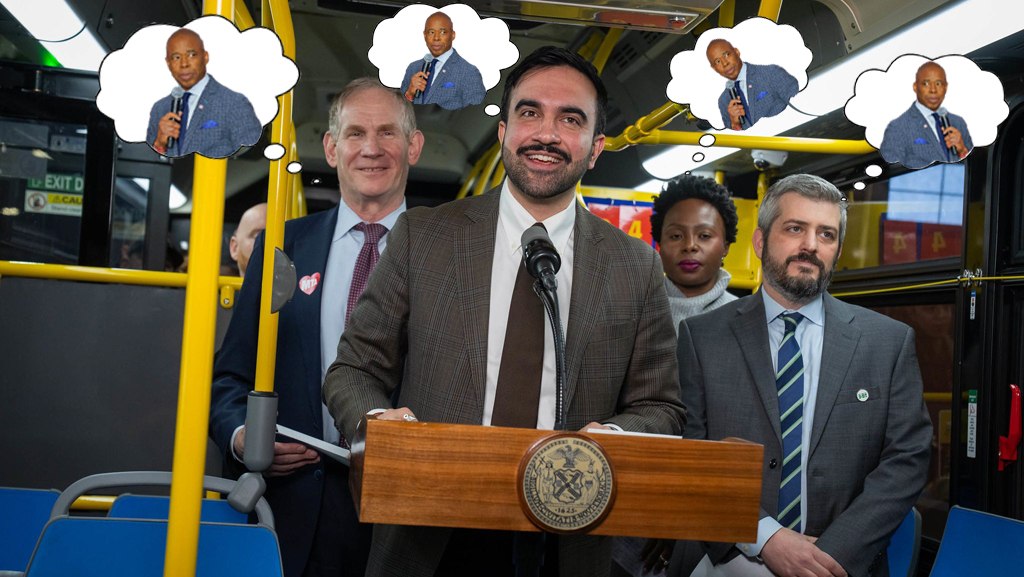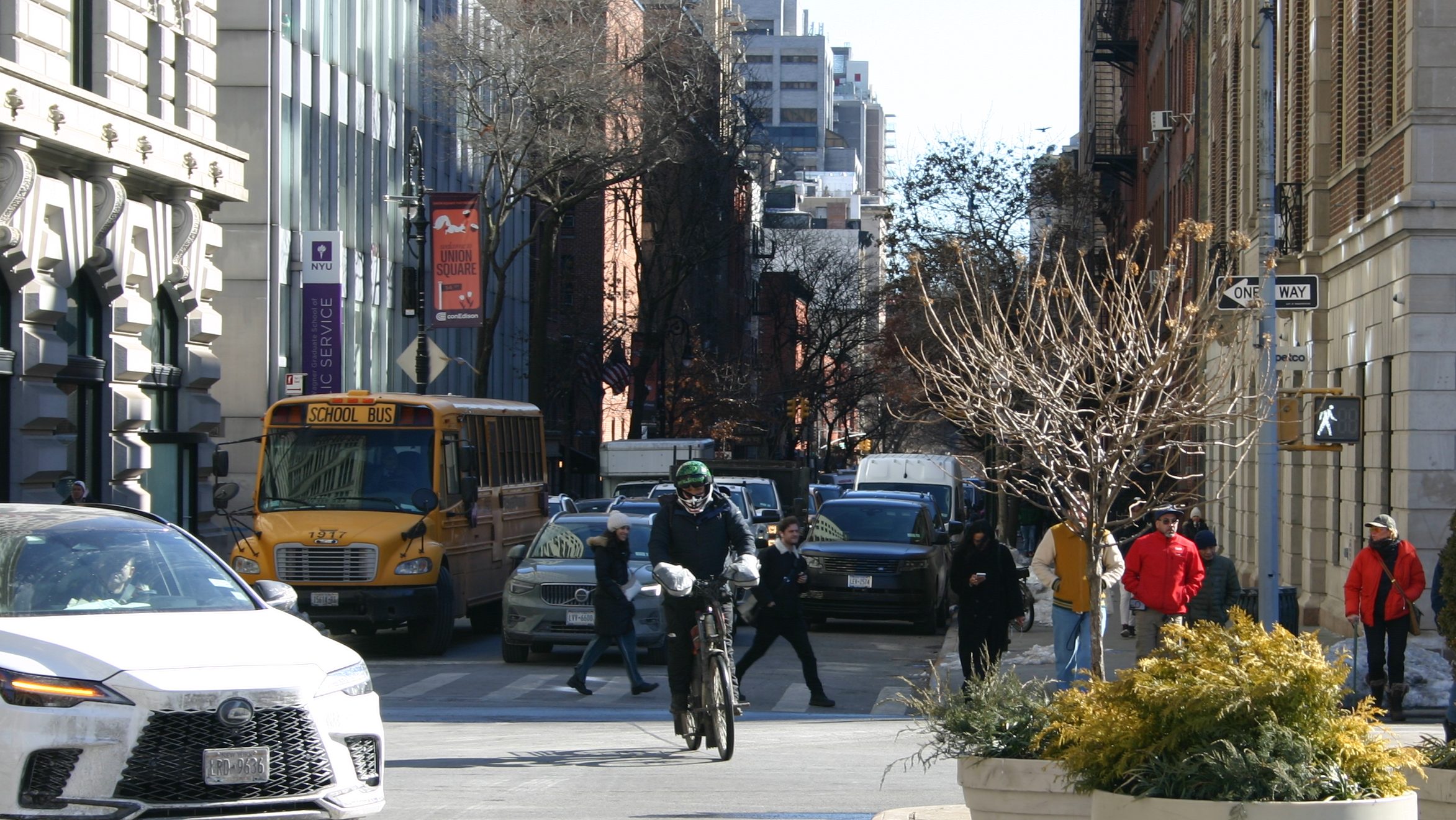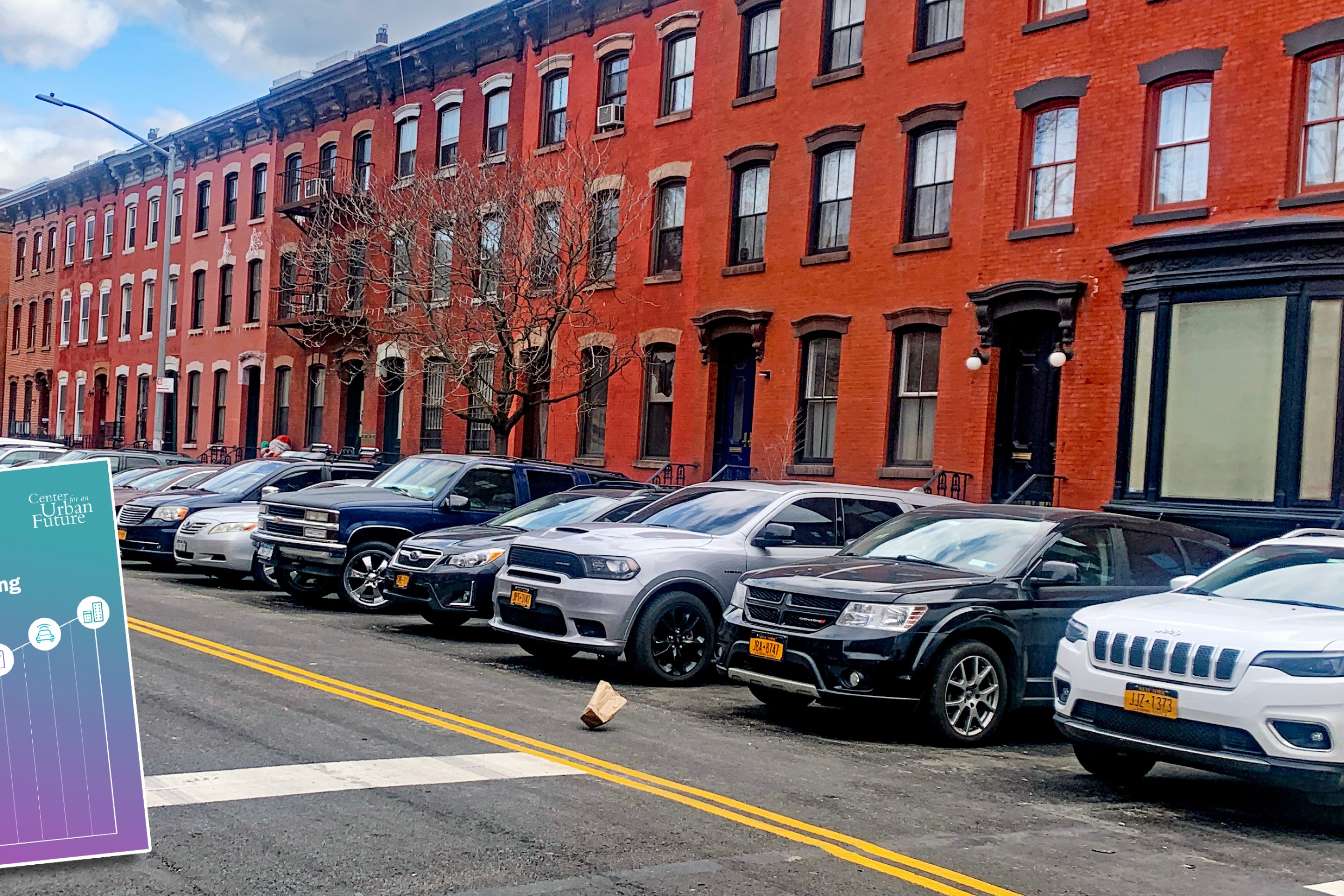
This weekend's full-page Wall Street Journal article on the measures that European cities are taking to make themselves more bike-friendly makes for an interesting comparison to what I'm seeing in my own neighborhood. While Brooklyn's Ninth Street Block Association "expresses concern" (i.e. yells and screams) that new bike lanes will increase traffic congestion, European cities, with 30 years of experience to look back on, see it quite differently:
Danish and Dutch officials say their countries might have been more congested if protests in the 1970s and 1980s had not sparked the impetus for building bicycle-lane networks. The arguments for more biking were mostly about health and congestion -- only in the past year has the environment started to be a factor.
And now with concerns about climate change growing, Europeans are setting aggressive targets to increase bicycling:
Norway aims to raise bicycle traffic to at least 8% of all travel by 2015 -- double its current level -- while Sweden hopes to move from 12% to 16% by 2010. This summer, Paris will put thousands of low-cost rental bikes throughout the city to cut traffic, reduce pollution and improve parking.
The city of Copenhagen plans to double its spending on biking infrastructure over the next three years, and Denmark is about to unveil a plan to increase spending on bike lanes on 2,000 kilometers, or 1,240 miles, of roads. Amsterdam is undertaking an ambitious capital-improvement program that includes building a 10,000-bike parking garage at the main train station -- construction is expected to start by the end of next year. The city is also trying to boost public transportation usage, and plans to soon enforce stricter car-parking fines and increase parking fees to discourage people from driving.
Meanwhile, bicycle riding is becoming as big a status symbol in some European cities as a blinged out Cadillac Escalade is here in New York City.
I bet that we are less than three years away from this culture shift in New York City. I will be shocked if we don't have a City Council candidate in 2009 racing to campaign events on a bicycle and making a real show of it:
Riding a bike for some has more cachet than driving a Porsche. Dutch Prime Minister Jan Peter Balkenende sometimes rides to work, as do lawyers, CEOs (Lars Rebien Sorensen, chief executive of Danish pharmaceutical giant Novo Nordisk, is famous for his on-bike persona) and members of parliament, often with empty children's seats in back. Dutch Prince Maurits van Oranje is often seen riding around town. "It's a good way to keep in touch with people on the streets," says Tjeerd Herrema, deputy mayor of Amsterdam. Mr. Herrema's car and driver still make the trip sometimes -- to chauffeur his bag when he has too much work to carry.
For Khilma van der Klugt, a 38-year-old bookkeeper, biking is more about health and convenience than concern for the environment. Her two older children ride their own bikes on the 25-minute commute to school while she ferries the four-year-old twins in a big box attached to the front of her bike. Biking gives her children exercise and fresh air in the morning, which helps them concentrate, she says. "It gets all their energy out." She owns a car, but she only uses it when the weather is really bad or she's feeling especially lazy.
Caroline Vonk, a 38-year-old government official, leaves home by bike at 8 a.m. and drops off her two children at a day-care center. By 8:15, she's on her way to work, stopping to drop clothes at the dry cleaner or to buy some rolls for lunch. On the way home, she makes a quick stop at a shop, picks up the children and is home by 5:55. "It is a pleasant way to clear my head," she says.
Can you imagine New York City government or an advocacy group like T.A. running a program like this?:
The programs for non-natives target those who view biking as a lower form of transportation than cars. "If they don't start cycling it will hurt," says Marjolein de Lange, who heads Amsterdam's pro-bicycle union Fietsersbond and has worked with local councils to set up classes for immigrant women.
On a recent Sunday afternoon, 23 women -- many in head-scarves -- gathered at a recreational center north of Amsterdam to follow seven Fietsersbond volunteers to learn to navigate through traffic. The three-hour event cost €3 (about $4) and included practice weaving in and out of orange cones and over blocks of wood. It ended with all of the women gathering in a park for cake and lemonade.
Though she faltered at times, Rosie Soemer, a 36-year-old mother of two who came to the Netherlands from Suriname, was sold. "It is so much easier to go everywhere by bike," she says.





